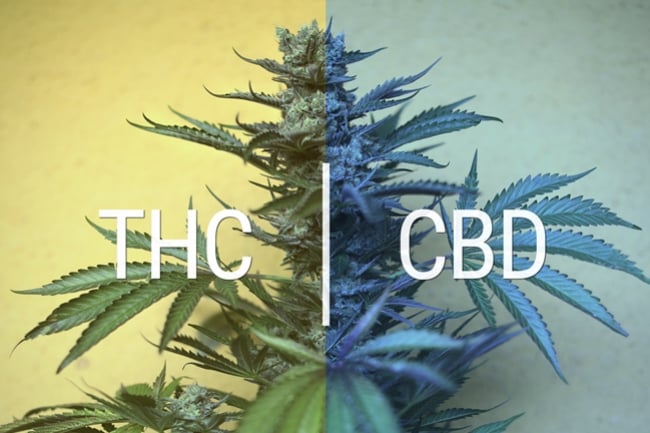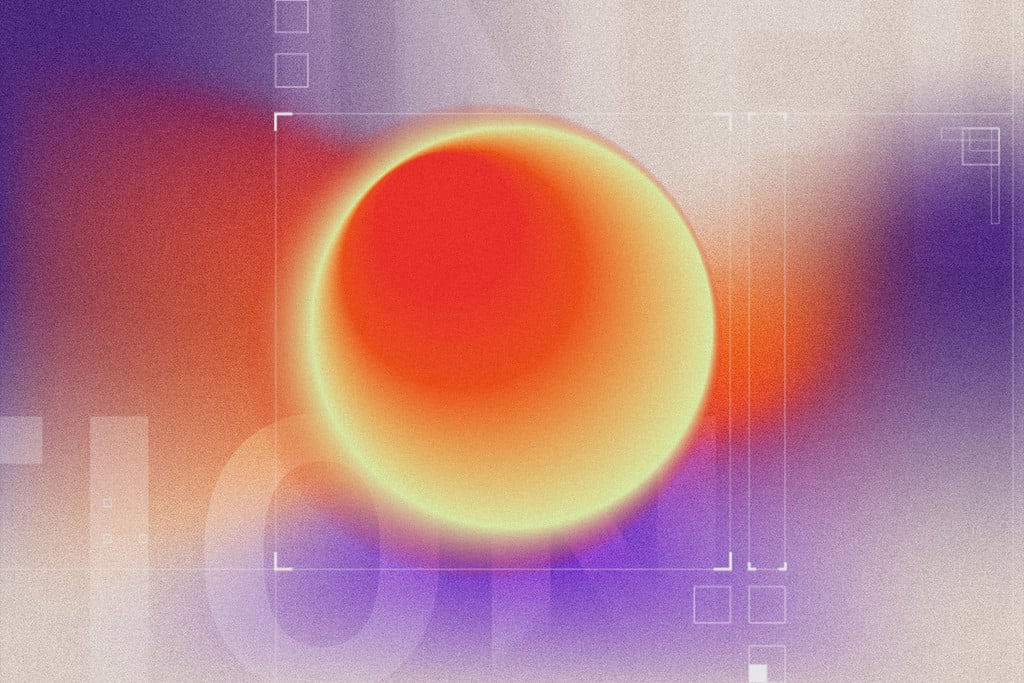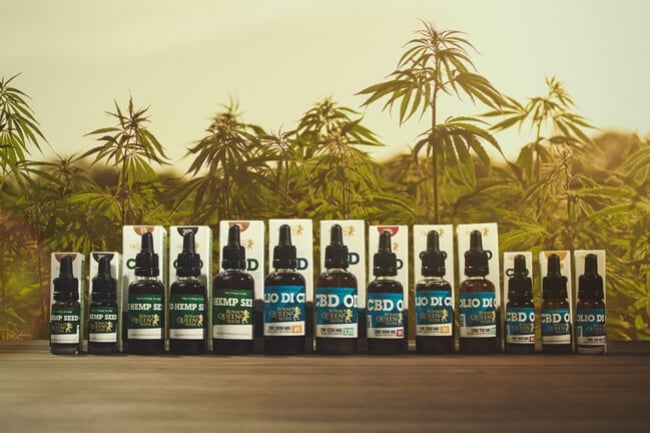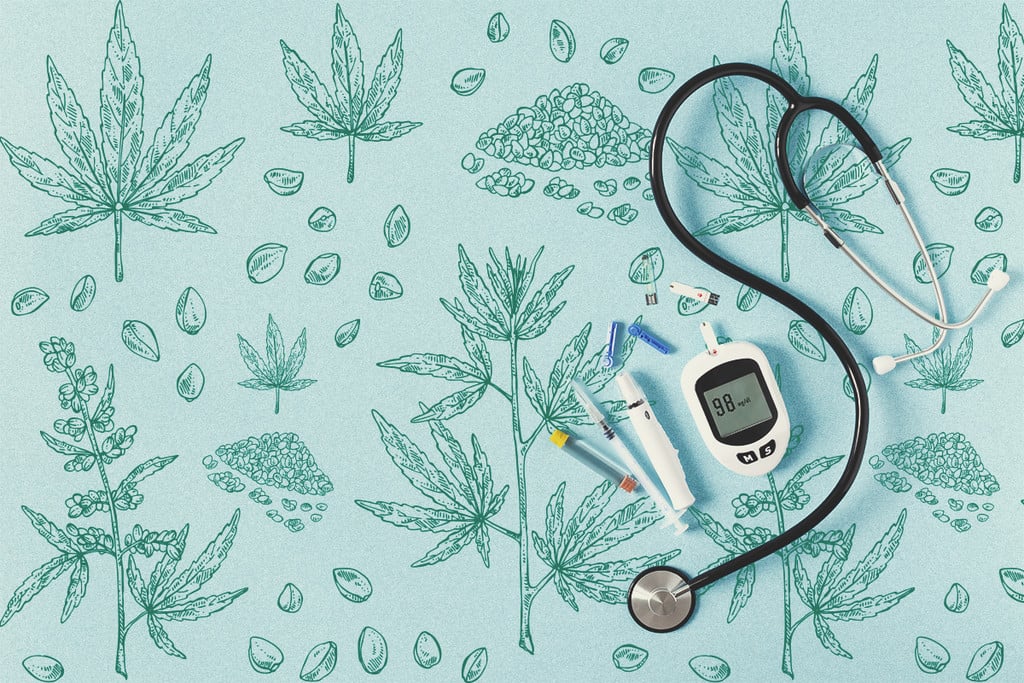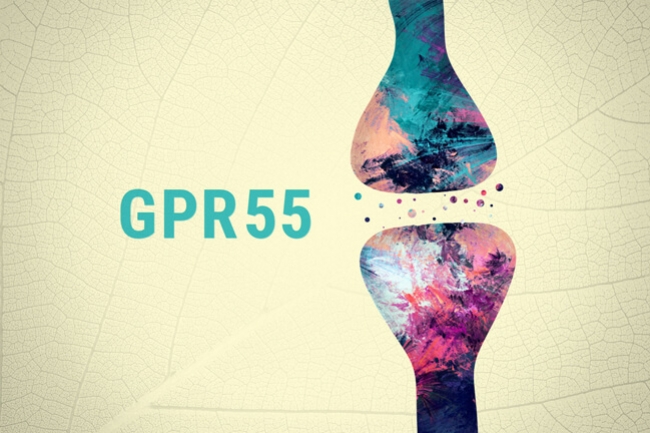.
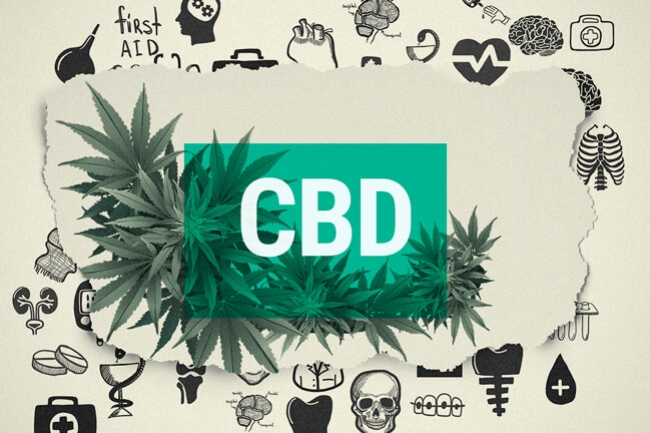
Does CBD Have Any Side Effects?
Although CBD produces positive effects in most users, others report side effects. The most common side effects of CBD oil include dry mouth, slight dizziness, and headache. However, some users also experience drops in blood pressure and diarrhoea. Learn more about these side effects, why they may occur, and how to avoid them.
Contents:
In only a matter of years, CBD went from being a relatively unknown cannabis constituent to a world-famous molecule. Now available in oils, cosmetics, dried flowers, concentrates, and even food, CBD exists just about everywhere.
Despite the sheer popularity of the non-psychotropic cannabinoid, many first-time and long-term users alike have questions regarding CBD's effects and duration. Among these queries are concerns over potential side effects and interactions with medications and health conditions. In this article, you’ll find everything you need to know about the side effects of CBD oil, who they affect, and how long they last.
What Is CBD
CBD, or cannabidiol, is found in the trichomes of cannabis and hemp plant matter, most notably in the flowers. Alongside over 100 cannabinoids and 200 terpenes, CBD contributes to the vast chemical complexity of the cannabis plant.
Before CBD became “mainstream”, cannabis was almost exclusively associated with the psychotropic compound THC, and viewed largely as a recreational drug. However, the surging popularity of CBD helped to pave the way for cannabis to gain acceptance within society.
CBD Produces No Psychotropic or Intoxicating Effects
Unlike its psychotropic counterpart THC, CBD produces no mind-altering high. However, both of these molecules interface with the human body in a similar way—through the endocannabinoid system (among other targets).
The endocannabinoid system (ECS) plays a regulatory role within the human body and helps to balance our biological systems. It consists of receptors, enzymes, and our own internal endocannabinoids. The two primary ECS receptors are CB1 and CB2. THC binds directly to CB1 receptors within the central nervous system, which gives rise to its psychotropic effects.
In contrast, CBD has a low binding affinity for these receptors. However, it can still interact with CB1 receptors, helping to block the effects of THC as a result. Cannabidiol also works to preserve our own endocannabinoids, such as anandamide, by preventing enzymes from breaking them down. Finally, CBD produces further unique effects via several other mechanisms, including serotonin receptors.
CBD Is Generally Well-Tolerated
With low toxicity and no psychotropic side effects, medical authorities such as the World Health Organisation consider CBD to be a well-tolerated molecule with a good safety profile[1]. Additionally, the WHO recognises that CBD poses little to no threat of abuse or dependence potential. Most of the time, healthy people tolerate CBD well—medications considered.
Does CBD Cause Serious Side Effects?
Although it lacks the intoxicating nature of THC, CBD can still produce side effects in some users. However, these reactions have nothing to do with getting high. Rather, CBD sometimes causes minor side effects that are mostly mere inconveniences. Even everyday vitamins, minerals, and supplements run the risk of minor side effects.
With that said, the cannabinoid may also disrupt the metabolism of some medications, which can subsequently cause some serious issues.
Some users tolerate CBD with absolutely no side effects, whereas others experience mild annoyances such as a dry mouth. For others, more noticeable CBD oil side effects like dizziness, fatigue, and low blood pressure are possible. Check out the potential side effects caused by CBD below.
-
Changes to Appetite
CBD appears to exert a multifaceted effect on appetite. In some people, the cannabinoid may speed up the metabolism and make them more hungry. In others, the molecule may suppress appetite, potentially leading to weight loss.
How do we know this? Well, science has let us in on some key findings. An article published in Epilepsy & Behavior administered CBD-enriched cannabis extracts[2] to children with epilepsy. Throughout the study, the researchers maintained communication with the parents to get an idea of the efficacy of the treatment, as well as any potential side effects. Out of 117 parents, 30% reported a significant increase in their child’s appetite.
Another study [3], this one published in Suchttherapie in 2016, paints a slightly different picture. This review of clinical data documents a study in which 23 children with Dravet syndrome received up to 25mg of CBD per kilogram of body weight per day. Unfortunately, the results were inconclusive, with some of the children experiencing an increase in appetite, whereas others experienced a decrease. It appears that there may be secondary factors influencing the effect of CBD on appetite, with researchers highlighting the need for larger-scale clinical trials.
Although these studies feature limitations, they currently provide the best scientific insight into the effects of CBD on appetite. After trying CBD for the first time, you might notice an increase or a decrease in hunger, or no change at all.


-
Dizziness
Although relatively rare, some users experience bouts of dizziness after taking CBD. Many of these experiences are anecdotal, but some scientific literature also backs them up. Several studies report dizziness as an adverse reaction[4] after co-administration of CBD alongside THC. Yet, it remains unknown which cannabinoid truly underpins these effects.
Dizziness after consuming CBD remains one of the more common side effects, but the exact cause is still poorly understood.No study thus far has delved into the mechanism behind why this might occur. In reality, science still has a lot of work to do to truly understand the effects of CBD, and many of its mechanisms remain unidentified or undisclosed. Thus far, some scientists believe that dizziness may be down to a change in brain cell signalling and activation of the autonomic nervous system that alters blood flow to the brain.
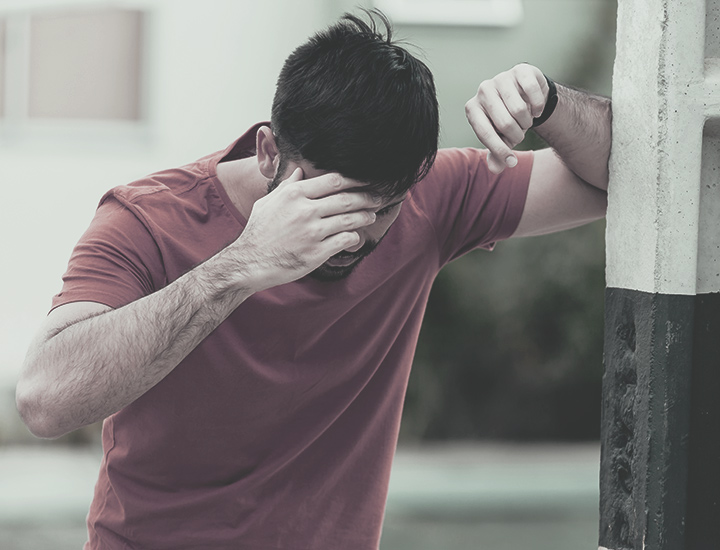
-
Diarrhoea
Perhaps one of the most uncomfortable side effects of CBD oil, some users report diarrhoea after consuming the cannabinoid. Although CBD can cause an upset stomach in some users, the molecule may not always be the direct culprit.
Taking almost any supplement on an empty stomach has the potential to induce nausea, queasiness, and the runs. By taking CBD shortly after a meal, you can work out if you tolerate it better with a full belly. Additionally, almost all CBD products contain other components. Full-spectrum extracts contain an array of other molecules such as terpenes, and crude formulas also contain lipids, waxes, and chlorophyll that may contribute to an upset stomach.
CBD oils use a carrier oil to dilute the product. Common carriers include olive oil and coconut oil, yet these rarely cause issues. However, some product lines use medium-chain triglyceride (MCT) oil, which can cause diarrhoea in some people, especially those new to it.
Going beyond anecdotal experiences, studies, such as one published in the journal Epilepsia in 2018, document diarrhoea as an adverse reaction following CBD administration. This particular study tracked the effects of long-term CBD treatment[5] in patients with Dravet syndrome. Among other side effects, diarrhoea occurred in 34% of the 278 patients.


-
Fatigue
If you take CBD in the morning before a long day at work, or during the day when you’re feeling particularly stressed, you might find yourself feeling a bit more fatigued than usual. Research has yet to identify a mechanism behind this, and chances are this state of fatigue simply stems from feeling profoundly relaxed.
Interestingly, CBD may help to alleviate fatigue in some circumstances. Characterised by extreme tiredness, chronic fatigue syndrome (CFS) leaves sufferers feeling wiped out and extremely tired throughout the day. Anecdotal reports claim reduced fatigue following CBD administration, possibly due to changes in immune cell function and inflammation.
Due to the possibility of experiencing fatigue as a side effect, we recommend taking CBD at home during the evenings the first few times you give it a try. This way, you won’t be far from your warm bed if you start to feel a bit tired.

-
Dry Mouth
The sensation of a dry mouth can occur for a variety of reasons, including dehydration and consuming high-THC cannabis. CBD also appears to cause dry mouth in some users. Although this minor side effect seems innocent and easy to remedy, it can become annoying quite fast. The type of dry mouth caused by CBD differs from merely forgetting to take a sip of water. Known as xerostomia, it results from a reduced or absent flow of saliva. Both THC and CBD act in a similar way in this regard.
Endocannabinoid receptors are located on salivary glands and regulate the amount of saliva that flows into the mouth. THC binds directly to CB1 receptors and inhibits the production of saliva. However, CBD doesn’t bind to this site. Instead, it works by increasing anandamide levels, which then go on to bind to the CB1 receptor, resulting in the same outcome.

-
Lower Blood Pressure
The lowering of blood pressure resides on the more serious end of the spectrum of CBD side effects.
Numerous clinical trials report reduced blood pressure as a side effect of CBD. A 2017 study conducted in the United Kingdom found that a single dose of CBD reduced resting blood pressure[6] in healthy volunteers. Interestingly, it also reduced blood pressure increase resulting from stress.

-
Headaches
CBD may cause headaches in some users. This side effect seems to mostly arise in new users, especially those that take too much, too soon. There are many other variables that contribute to headaches, including certain foods, stress, and dehydration. Make sure you rule all of these out before pinning the blame on CBD.
On the flip side, researchers are currently testing CBD[7] to see if it can provide any benefits for headache patients in the future.


Does CBD Have Side Effects With Other Medications?
CBD changes the way the body metabolises some medications. The cannabinoid doesn’t directly interact with other chemicals in the blood, but it does change the way the liver breaks them down.
The liver plays a fundamental role in human physiology. This fascinating organ helps to metabolise macronutrients, activate enzymes, and filter the blood. The liver manufactures certain enzymes that also work to break down drugs and put an end to their effects in the body.
One such group is the cytochrome P450 enzyme family. These proteins are involved in processing a wide range of pharmaceutical drugs. As you might remember from biology class, each type of enzyme catalyses a reaction with a specific type of substrate. A specific CYP enzyme known as CYP3A4 breaks down around 60% of all prescribed drugs. The substrates include:
- Seizure medication
- Immunosuppressants
- Antidepressants
- Antipsychotics
- Calcium channel blockers
- Opioids
However, CYP3A4 also works to break down CBD. During this metabolic process, CBD interferes with the enzyme and begins to inhibit it. If there are other drugs in the system, decreased levels of the enzyme mean they linger in the bloodstream for longer than intended.
The reverse also stands true. If a person already takes drugs that require CYP3A4 metabolism, CBD might not get its fair share of processing, resulting in excess levels in the blood.
Doctors and pharmacists prescribe medications in very specific amounts, set to work over a certain amount of time. By interrupting this process, CBD might put some patients in danger. For example, drugs that require avoiding driving or operating heavy machinery may have negative impacts on reaction time past the intended timeframe.
Researched published in Epilepsia analised the effects of CBD[8] when co-administered with the epilepsy medication clobazam. In a trial of 25 children, 13 were receiving clobazam as a prescribed treatment. The researchers found an average increase in clobazam drug levels of 60–80% in participants.
Although this enabled the researchers to decrease the amount of medication prescribed alongside CBD, reducing clobazam’s side effects in turn, users should never try to co-administer any medications with CBD away from their doctor's supervision.
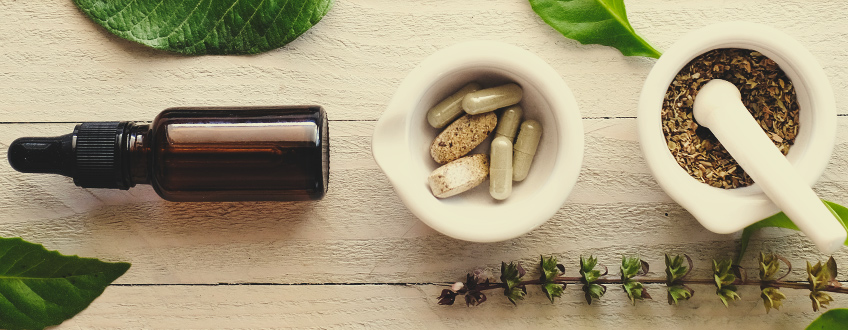
Will CBD Side Effects Go Away?
If you experience any side effects from CBD, you can expect them to dissipate quickly. All drugs feature a half-life—the amount of time it takes for their levels in the body to reduce by half through processing and elimination.
The half-life of CBD remains unconfirmed, as different studies yield different results. But it looks as though the cannabinoid has a half-life of 18–35 hours, with faster methods of application such as smoking causing levels to reduce quicker. Although it takes a while for CBD to completely leave the system, the effects of the molecule begin to wane after around 4–6 hours.
How to Limit Side Effects From CBD
Whether you’ve experienced side effects from CBD before, or simply want to avoid the possibility in the future, there are a few variables you can control to reduce your chances of encountering them.
-
Buy High-Quality CBD Oils
Following CBD’s surge in popularity, the market for the cannabinoid quickly became saturated. Suddenly, every man and his dog offered their own brand of CBD products. Although numerous companies offer high-quality oils, many others out there are sub-par, to say the least. To reduce your chances of experiencing CBD oil side effects, opt for high-quality products from reputable companies that contain exactly what they state on the bottle—nothing more, nothing less.
-
Purchase Independently Tested CBD Products
Trusted companies are confident in their CBD products—so much so that they increase customer confidence by batch-testing their CBD oil. Only purchase products that are sent off to undergo third-party testing before sale. This guarantees a high-quality oil free from contaminants such as heavy metals and adverse levels of THC.
-
Start Low and Slow
CBD affects everyone differently. If you’re new to the cannabinoid, we suggest starting with a low, single dose. Allow your body to get used to it. Slowly increase your dose and frequency over time to minimise any adverse effects. Once you find your sweet spot, you’ll know exactly how much to take before you start experiencing any unpleasant effects.
-
Seek Natural Ingredients
Unfortunately, some hemp plants aren’t grown in the most responsible or safe manner. Pesticides can end up in the end product, which can cause their own detrimental effects. At Royal Queen Seeds, we use only naturally cultivated hemp plants featuring THC levels below the EU limit.
CBD Oil Safety — The Bottom Line
CBD is regarded as a safe molecule with a low risk of abuse. Most people won’t encounter any side effects at all, and will experience only clear-headed and enjoyable effects. However, if you do start to experience any side effects, or are taking any form of medication, you must consult your doctor as to whether CBD is the right choice for you.
- CANNABIDIOL (CBD) Critical Review Report https://www.who.int
- Perceived efficacy of cannabidiol-enriched cannabis extracts for treatment of pediatric epilepsy: A potential role for infantile spasms and Lennox-Gastaut syndrome - PubMed https://pubmed.ncbi.nlm.nih.gov
- An Update on Safety and Side Effects of Cannabidiol: A Review of Clinical Data and Relevant Animal Studies https://www.ncbi.nlm.nih.gov
- Oromucosal Δ9-tetrahydrocannabinol/cannabidiol for neuropathic pain associated with multiple sclerosis: An uncontrolled, open-label, 2-year extension trial - ScienceDirect https://www.sciencedirect.com
- Long‐term cannabidiol treatment in patients with Dravet syndrome: An open‐label extension trial https://onlinelibrary.wiley.com
- A single dose of cannabidiol reduces blood pressure in healthy volunteers in a randomized crossover study https://www.ncbi.nlm.nih.gov
- Does cannabidiol (CBD) oil decrease the frequency and severity of chronic headaches? https://journals.lww.com
- Drug-drug interaction between clobazam and cannabidiol in children with refractory epilepsy - PubMed https://pubmed.ncbi.nlm.nih.gov


























